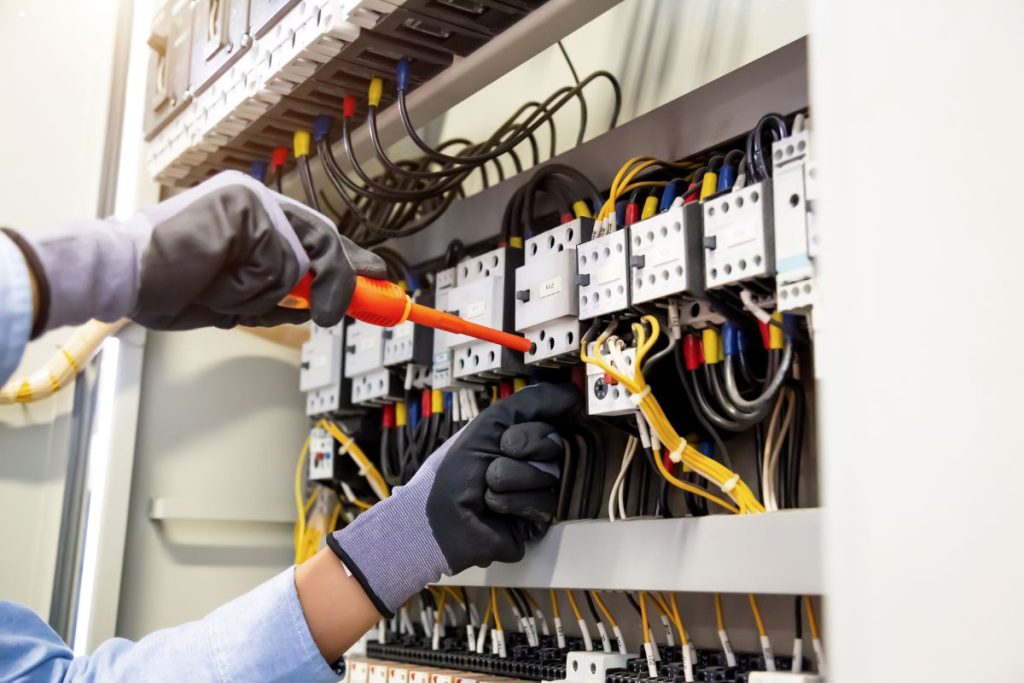
Electrical safety is a critical concern for New Zealand business owners and facility managers. From protecting employees and customers to safeguarding your property, maintaining electrical systems and adhering to safety regulations should be a top priority. Electrical hazards not only pose serious risks but also result in costly downtime, potential lawsuits, and non-compliance penalties.
To help you navigate the complexities of electrical safety, this guide offers expert tips on how to prevent hazards and ensure compliance with New Zealand’s electrical safety regulations. By following these guidelines, you can create a safer, more efficient work environment.
Routine inspections are essential for identifying potential hazards and ensuring that your electrical systems are functioning correctly. These inspections should cover all aspects of your facility’s electrical infrastructure, from wiring to equipment and electrical panels.
In New Zealand, it’s also recommended to engage a certified electrician for periodic professional inspections. An electrician will not only spot risks but will also ensure that your electrical systems are up to the current safety standards.
New Zealand has strict regulations governing electrical safety, especially in commercial and industrial settings. It’s essential to stay up-to-date with the latest codes to avoid penalties and ensure your facility remains compliant.
Failing to comply with these regulations can result in hefty fines and business disruptions. It’s essential to consult with a licensed electrician who is familiar with New Zealand’s electrical standards and can guide your business through compliance requirements.
A well-trained workforce is your first line of defense against electrical hazards. Business owners and facility managers should invest in regular safety training for all employees to ensure they understand the risks associated with electrical equipment and how to handle it safely.
By empowering your team with the knowledge they need to stay safe, you significantly reduce the likelihood of accidents and ensure a safer working environment.
Inadequate or damaged tools and equipment can lead to serious electrical hazards. Always ensure that the electrical tools and equipment used in your facility meet safety standards and are regularly maintained.
Regular maintenance of equipment is also crucial. Faulty machinery or damaged cables should be repaired or replaced immediately to avoid accidents.
Lockout/tagout (LOTO) procedures are essential for preventing accidental energization of electrical equipment during maintenance or repair. These procedures ensure that dangerous equipment is properly shut off and cannot be started until maintenance is completed.
Incorporating lockout/tagout procedures into your facility’s safety protocols will help prevent accidental injuries and ensure compliance with New Zealand’s health and safety regulations.
Overloading circuits is a common issue in busy commercial environments where multiple devices and equipment are used simultaneously. Overloaded circuits can cause overheating, leading to electrical fires and damage to your infrastructure.
A licensed electrician can assess your power needs and make recommendations for safe circuit distribution.
Like any other part of your business infrastructure, electrical systems require regular maintenance to function safely and efficiently. Proactive maintenance helps catch issues before they become serious hazards.
By establishing a regular maintenance schedule, you can prevent costly repairs, reduce downtime, and ensure a safe environment for your staff and customers.
Electrical safety is paramount for New Zealand business owners and facility managers. By implementing regular inspections, adhering to compliance standards, providing employee training, and investing in quality equipment, you can mitigate electrical hazards and protect your business from costly risks.
For expert advice on electrical safety or to schedule a professional inspection, reach out to our CC Facilities Maintenance team so you can confidently manage prioritize safety today, and make sure your electrical systems are up to code and functioning optimally.
Sign up to get the Latest Updates
Caring for Kiwis over 30 years